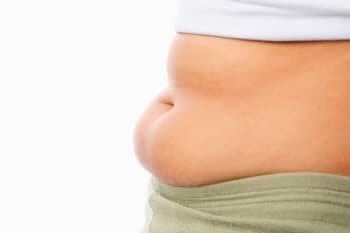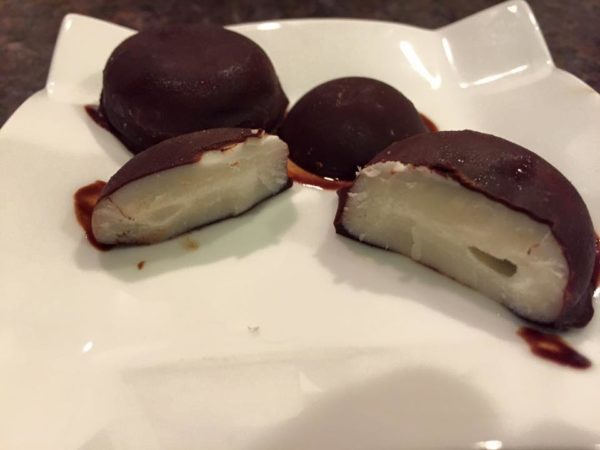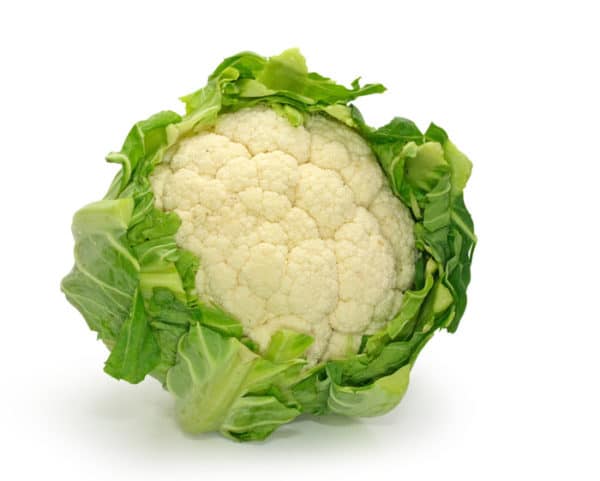
 Is everyone enjoying their summer? It is always so wonderful to be a bit off the usual schedule, enjoying relaxed time with your children, extended family, and friends; vacationing and traveling, and just being on a lazier schedule much of the time. But if you are like a lot of people at this time of year, your “being less diligent” about food choices may be starting to catch up with you. BBQs, picnics, a little more alcohol at summertime functions, eating junk on those family road-trips – just thinking about all of these events makes my belly feel “unhappily” full! So how are YOU feeling?
Is everyone enjoying their summer? It is always so wonderful to be a bit off the usual schedule, enjoying relaxed time with your children, extended family, and friends; vacationing and traveling, and just being on a lazier schedule much of the time. But if you are like a lot of people at this time of year, your “being less diligent” about food choices may be starting to catch up with you. BBQs, picnics, a little more alcohol at summertime functions, eating junk on those family road-trips – just thinking about all of these events makes my belly feel “unhappily” full! So how are YOU feeling?
Are you or your clients routinely feeling a bit bloated, gassy, and uncomfortable?
I truly feel that summer is a struggle for many people who may otherwise be following a “happy belly” diet! So I thought this would be a good time to remind people of some of the key foods that are more likely to make their belly UNHAPPY. I’ll also talk a bit about the importance of HOW you eat in keeping your digestion humming along this summer.
HOW you eat is just as important as WHAT you eat
A happy belly starts in your head and heart.
What?
Yes, digestion begins in your head and heart, because that is where your mood and stress level dictates how well your digestion will occur. If you are eating on the run, are under stress, or otherwise not in a calm, happy place, your body is likely pumping stress hormones like cortisol and adrenaline in response.
These hormones will take control. Remember the whole “Fight or Flight,” running away from the Tiger analogy of cortisol? Your body pumps out the hormones that allow you to run away from the particular Tiger that is chasing you at the time! Well, the unfortunate side effect of those hormones (if you truly aren’t trying to escape a tiger) is that they focus your body on things like limbs and strength, and away from activities that promote healthy digestion. Your blood supply in your digestive tract is decreased, and there is a decrease in digestive enzymes as well.
So you really do need to take a moment before each meal and stop, take a deep breath, and allow yourself to appreciate something about the meal. If you are spiritual, you can thank God or whatever your spiritual practice might be. You could also pause in your reflection to thank the farmer who grew you the food, or the nature that nurtured it. Whatever centers you for that moment and allows you to be calm will help jumpstart that happy belly. Including pleasant sounds can be helpful, too.
After that, your very next digestion optimization step involves a seemingly simple thing that many of us struggle with – adequate chewing. Your mouth – which includes your teeth – is really the only place in your body where there is a mechanical breakdown of food. This is needed so that your body can absorb the nutrients in your food, so it is incredibly important to masticate your food. Here’s a hint: check your poop sometime to see if you see any undigested food in it. That means the nutrients from eating that carrot you see were not absorbed! The need to chew becomes more apparent then.
After you chew, your food goes to your stomach where acid starts to work on initiating the breakdown of
The next step in the process is for the partially digested food to travel into the small intestine, where pancreatic enzymes further its breakdown. Finally, this is where the nutrients in your food get absorbed into your blood stream through pores in fingerlike projections called villi.
It is important for you to understand this, because a lot of things you do – including what you eat – damage the villi. Alcohol, caffeine, pesticides, toxins, food sensitivities, gluten – they all damage the villi which creates gaps allowing partially digested proteins to get into your bloodstream. This is called leaky gut. Once the undigested particles, along with stray bacteria and toxins, get into your blood, your body’s immune system attacks it. Leaky gut creates a lot of inflammation, chronic health issues, and disease.
This is why I always say that “Health starts and is maintained in the gut.” In order to prevent, or heal, your belly so you won’t have that bloating, gas, and pain, and achieve overall health, you first need to start choosing the right foods and eliminating the wrong foods.
What foods cause bloating and indicate an unhappy belly?
Gluten: The first thing I usually tell a client to eliminate is gluten. I tell them to remove it for 6 months to allow their gut time to heal. Then, if they really want to, they can try introducing it back slowly as a test.
Gluten damages the villi on the gut lining. It is “sticky,” so it’s difficult for your body to break it down and digest, which contributes towards inflammation.
I really think that over 50% of the average American diet is gluten, if you factor in the cereals, crackers, cookies, breads, pasta, etc. We know most people have food sensitivities to it. Some worse than others, but it is a good thing to remove to see how it makes you feel. Here’s an earlier podcast on gluten if you’d like to hear a bit more.
Caffeine: Coffee, black tea, and soft drinks all affect the digestive lining. Caffeine blocks the absorption of magnesium, a key mineral that is essential to the colon’s regulation of normal, healthy bowel movements. Coffee itself compounds the problem by acting as a laxative, causing the bowels to move prior to the absorption of water and mineral nutrients. This reinforces body dehydration and malnourishment.
Dairy Products: Milk, cheese, sour cream, ice cream, and most commercially baked goods, along with other many hidden sources, create mucus and inflammation which interferes with absorption. There are easy substitutes, including coconut milk, almond milk, and vegan and fermented cheeses. If you are drinking dairy for the calcium, note that you can also get calcium from sesame seeds, mineral water and many nuts.
Alcohol: Causes intestinal permeability by suppressing the production of anti-inflammatory prostaglandins. Alcohol inhibits stomach digestion, and causes delayed stomach emptying — a condition known as gastroparesis. After about 8 to 10 hours inside the stomach, undigested proteins start to rot. These poisonous byproducts provoke vomiting, which then cause an extensive loss of fluids and electrolytes. The body recovers lost electrolytes from feces, making them hard and dry. This can also lead to chronic constipation.
Processed Meats: Cold cuts, commercially raised animal products, and farmed fish – disrupt the gut flora. MSG is often added during the processing procedure to enhance the flavor, which can cause nausea, headache, cramping, fatigue, and other symptoms.

Refined foods: All of the “white” foods such as white flour and white rice; processed packaged foods, crackers, cookies, bread, etc., are all deficient in vitamins and minerals, imbalance blood sugar, and feed unfriendly gut microbes. P
Unstable Oils: Hydrogenated, trans fats, most commercial oils (except olive, coconut oil, flax, and hemp), and all heated polyunsaturated oils – disrupt omega-3-to-6 fat balance, leading to inflammation that disrupts the gut lining. Even with olive and coconut oil, do not use high heat as it creates oxidative stress. Also, most of these are refined oils, and are solvent extracted at high heat with harsh chemicals such as hexane. Because of these refinements, they have been depleted of certain vital nutrients, including lecithin, chlorophyll, vitamin E, beta-carotene, calcium, magnesium, iron, copper, and phosphorus.
What foods are good for your digestion and gut health (and won’t cause belly bloat)?
First, before I get into the top foods for a happy belly, let me also say WHEN you eat is also important. Don’t have your heaviest meal at night, and try to have something that is easily digested (leafy greens and sprouts, for example). Have your larger meal at lunch so that your body has adequate time to digest prior to your going to bed. You will wake up with a happier belly and, also likely, a better night’s sleep.
So here are some of the foods that you should be incorporating into your diet (while eliminating the ones above):
Brassicas: Includes broccoli, cabbage, cauliflower, kale, and Brussels sprouts. Brassicas contain sulforaphane, which has been shown to be a potent gut healer and detoxification inducer. Brassicas are best eaten blended into soups and dressings, pressed or massaged and marinated, or very lightly steamed.
Dandelion: Such a wonderful green, dandelion has many tremendous digestion benefits. It is a potent detoxifier, helps bile flow and stomach acid production, and contains inulin, a prebiotic that helps support a healthy gut flora.
Broccoli sprouts: Enhances detoxification and is also known to be an anti-cancer food.
Chia seed: Is mucilage-rich, an intestinal broom, and also relaxes and soothes the endodermal lining of the gut. Chia seeds are rich in anti-inflammatory essential fats. Mucilage is not broken down by the human digestive system, but absorbs toxins from the bowel and gives bulk to stool.
Flax seed: Another mucilage-rich intestinal broom.
Onion and garlic: Antimicrobial and anti-parasitic; contains inulin, a prebiotic that supports healthy gut flora.
Green leafy veggies: Provide protein and nutrients to aid in leaky gut repair and detoxification. Read about the many benefits of green leafy vegetables in keeping your digestion healthy.
During the summer when it is hot where I live, I love using greens to make healthy wraps, a cleansing alternative to sandwich bread, tortillas, pita bread and other popular grain-based processed wraps and tortilla shells. Of course you just can’t get it wrong with a favorite summer salad.
Virgin Coconut Oil: Anti-fungal, anti-viral, and helps decrease candida overgrowth.

Triphala: A famous Ayurvedic herbal formula that can rejuvenate the intestinal tract. Triphala literally translates as three fruits, and is made up of these fruits that come from India:
- Amalaki – (Emblica officinalis) – supports the health of the intestinal mucus membranes
- Bibhitaki – (Beleric myrobalan) – helps remove mucus from the gut
- Haritaki – (Chebulic myrobalan) – tones the muscles of the gut
These three fruits help to tone, cleanse, and stimulate the digestive tract. This is a perfect solution to the digestive sluggishness that takes place each summer.
And there are so many more.
One additional note I’d like to make is how great many of those fresh vegetables and fruits can be to keep your belly from bloating. If, however, you or your clients have digestive troubles, I wrote a whole blog series dedicated to this and ways you can help them find the source of their dilemmas.
How to make the best use of summer’s bounty
Use plenty of brightly colored summer fruits and vegetables, and enjoy creating beautiful meals – make a dazzling display with the colors of the food, and design a floral arrangement for the table. If you cook, cook lightly, and regularly add a little spicy, pungent, or even fiery flavor. When sauteing, use high heat for a very short time, and steam or simmer foods as quickly as possible. Use little salt and more water.
If you want to attend your favorite summer celebrations – family reunions, community picnics, vacation travels – but you want to stick to your goals and have energy and be at your ideal weight, I want you to know it’s possible. I videotaped a class I did in my home, and have ready to teach you how easy it is to make mouth-watering yet nutritious foods to take you through your summer.
You can still show up with hot dogs, burgers, potato salad, and strawberry shortcake. In fact, you may want to double the recipes. Every time I make them, I almost don’t get any for myself! People are really intrigued by the notion that healthy food can still taste this good. Picnic and Barbecue Foods is part of my Raw Food University collection. This is another way for you to see the variety of foods you can make, and that you don’t ever have to feel like you’re stuck eating cardboard. Quite the contrary!
Start by making one change today!
The bottom line is to just start making changes today – for yourself and for your clients. Enjoy your summer, but don’t let your health take a vacation!
If you are ready to learn more and make that initial step to building a health career you truly love, apply for the Nutritional Endocrinology Practitioner Training program at http://www.NEPTApply.com. Learn how you can help your clients live a better life, and learn the formula to achieve your own thriving practice. This program isn’t just about learning more of the science of your healing craft, it’s also about the importance of having mentors to guide and lead you. Come join us!
COMMENTS? WHAT FOODS DO YOU OR YOUR CLIENTS FIND TO BE PARTICULARLY PROBLEMATIC FOR THEIR BELLIES?
Share this:

Are you feeling stuck?
Do you feel as if something is missing from your practice that's keeping you from delivering breakthrough outcomes for your clients?.
Recent Posts
Our Programs
Nutritional Endocrinology Practitioner Training (NEPT)
The Mastery and Certification tier is our flagship program and provides everything you need to feel confident as a practitioner who knows how to get results that lead to healthy and happy clients.
Functional Assessment Mastery
Explore the relationships between the most important hormones and their relationship with nutrition.
Functional Nutrition Mastery
Learn how to support your clients to eat and supplement in a way that reduces and eliminates chronic symptoms.
Medical Disclaimer: The information on this website is not intended to replace a one-on-one relationship with a qualified health care professional and is not intended as medical advice. It is intended as a sharing of knowledge and information from the research and experience of Dr. Ritamarie Loscalzo, drritamarie.com, and the experts who have contributed. We encourage you to make your own health care decisions based upon your research and in partnership with a qualified health care professional.
Disclosure: Sometimes (but not always), when I share resources in my programs, newsletter, and on my website, I'm using an affiliate link, which means I do make money if you buy. My credibility is extremely important to me; therefore, I only endorse the products, services, and people I believe in. DrRitamarie.com is independently owned and the opinions expressed here are my own.
Click here to see our Privacy Policy.











[…] your stomach feels a little more bloated and just “unhealthy.” You probably know the feeling I’m talking about. Perhaps you aren’t […]